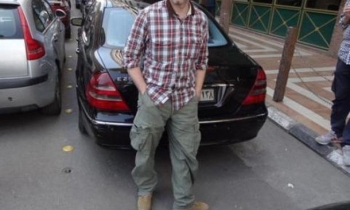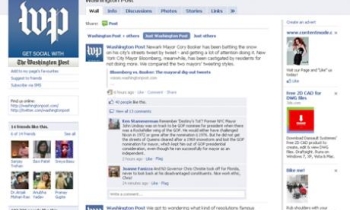The story that most aroused N&O readers in the past week has to do with the press and national security. When is it appropriate for newspapers to publish information that could jeopardize our common safety and well-being?
The question arises from the disclosure in The New York Times and other national papers, and reported subsequently in The News & Observer, that the government is monitoring an international financial database that includes transactions of Americans and people abroad.
Critics from President Bush on down condemned The Times for disclosing information that they said could compromise the government's counter-terrorism efforts. I got an earful from readers who said it was irresponsible of The N&O to compound the damage by reprinting much of the story locally.
"In my view, what The New York Times did was aiding and abetting the enemy," said reader Sharon Pelt of Raleigh, "If you look at the historical definition of treason, it's treason." She objected to a Dwane Powell cartoon Thursday pillorying the Bush administration for attacking The New York Times.
Unfortunately, we're hearing much of that kind of language these days, a byproduct of the war on terror. At least two members of Congress last week said editors of The Times should be tried for treason.
I believe the case raises legitimate questions regarding newspapers' responsibility in reporting confidential government operations during wartime. Before we get into that issue, though, let's quickly discuss The N&O's role.
The banking surveillance program was disclosed Friday, June 23, in separate stories in The New York Times, The Wall Street Journal and The Los Angeles Times. The evening before, the N.Y. Times News Service transmitted the story to its subscriber newspapers, including The N&O.
N&O editors did debate whether to publish the story, but not because of qualms about national security. The concern here, rather, was whether to publish a story that used anonymous sources extensively. The Times story was based on interviews with nearly 20 government and industry officials who discussed the surveillance program on condition of anonymity.
The N&O has a policy against using anonymous sources, because of concern about credibility. In this case, the paper decided to publish the Times story because the existence of the surveillance program was confirmed on the record by a named Treasury department official who was quoted in the story. N&O editors removed from the story all information attributed to anonymous sources.
Once the anonymity obstacle was removed, it was an easy call for The N&O to publish the story. Any breach of security, if there indeed was one, already had occurred with publication of the story elsewhere, and N&O readers would have been ill served if they couldn't read the story in the local paper. No government officials asked The N&O not to publish, as they did with the national papers.
The more difficult question is whether those papers should have disclosed the program after being told by, among others, Treasury Secretary John Snow that publication would harm counterterrorism efforts. The administration has articulated persuasive reasons to withhold the information, most compellingly "that publishing the story would lead terrorists to change tactics," as Snow wrote in a letter to The Times published Thursday. Bill Keller, Times executive editor, said the administration also argued that the unfavorable publicity would deter international bankers from cooperating with the surveillance.
There are also good arguments for publication. One is that the administration has a track record for overstepping individuals' privacy rights and civil liberties in its counterterrorism efforts. Witness the previously disclosed (by The Times) NSA telephone-call monitoring program, excesses of the Patriot Act and the Guantanamo detention program, undercut last week by the U.S. Supreme Court. From that broader perspective, surveillance of private banking transactions can be seen as part of a whole cloth with those other controversial government activities, and Americans deserve to know that information.
A local terrorism expert who thinks the Times report did go too far is David H. Schanzer, director of the Triangle Center on Terrorism and Homeland Security, which is centered at Duke University and UNC-Chapel Hill. He said details in the story, such as the name of the international banking cooperative, could help terrorists evade counterterrorism monitoring. "I wonder if the level of operational detail in the article was necessary to inform the public," he said in a telephone interview.
But Schanzer said the Bush administration has invited such press scrutiny by its penchant for secrecy and unwillingness to subject itself to greater oversight by Congress and the courts. In an Op-ed piece in The N&O on Wednesday, Schanzer argued for more transparency and accountability to give the public assurance that counterterrorism tools, such as high-tech data analysis, aren't necessarily a threat to individual privacy.
My own feeling is that we as a profession and as a society should lean -- err, if necessary -- to the side of informing the public. I think the burden is on the government, not the press, to demonstrate why information should not be published, and in this case the strongest argument -- that terrorists would be alerted to the monitoring -- is not compelling. They may not know the name of the international banking cooperative, but terrorists surely know their bank transactions are tracked.
What worries me most is what appears to be a growing anti-press sentiment, as reflected in this anonymous call I received last week. "I'm beginning to think it might be time for a constitutional amendment to amend the freedom of the press," said the caller, who described himself as a longtime supporter of the Kennedy family. "I think The New York Times has overstepped its bounds so terribly, and for you guys to take that story and reprint it just offends me deeply. ... It may be time to rein in the press hard. I mean hard."
It is an ugly mood out there, whipped up by politicians who see political hay to be made by demonizing The New York Times. (I wonder why the blogs and e-mail I see don't mention that the banking surveillance also was disclosed by The Wall Street Journal, which has a conservative editorial page friendly to the Bush administration.)
When we're talking about jailing editors for treason and amending the First Amendment, we're in dangerous territory. Yes, there are some stories that don't need to be published. Yes, newspapers need to be responsible in the exercise of their First Amendment freedoms. But take away those freedoms, and the terrorists have won.
The Public Editor can be reached at ted.vaden@newsobserver.com or by calling (919) 836-5700.









